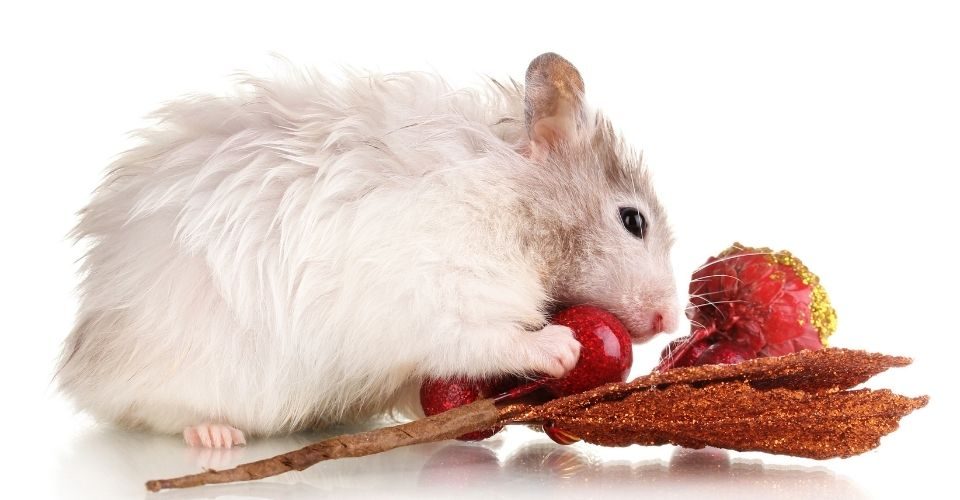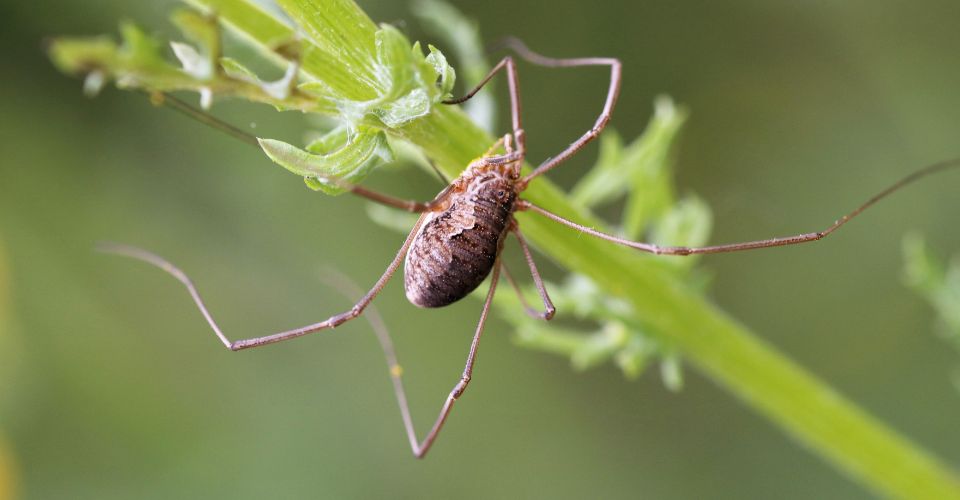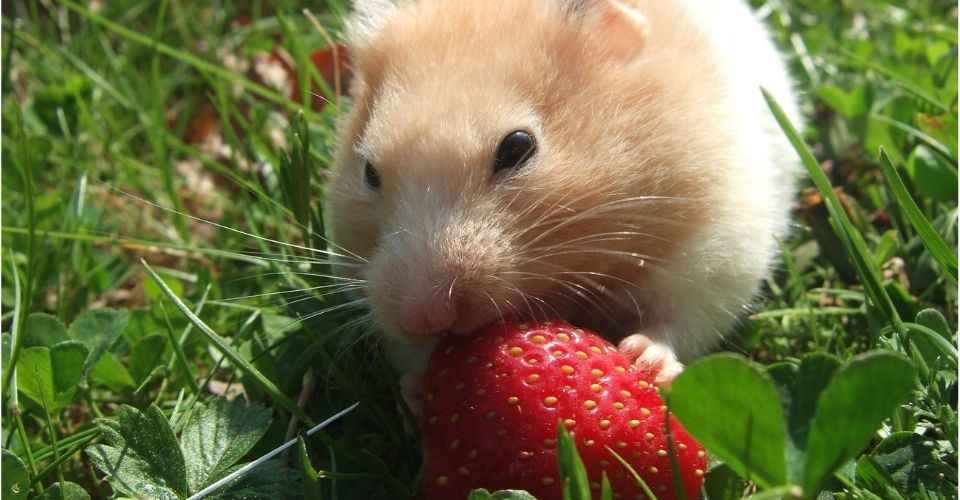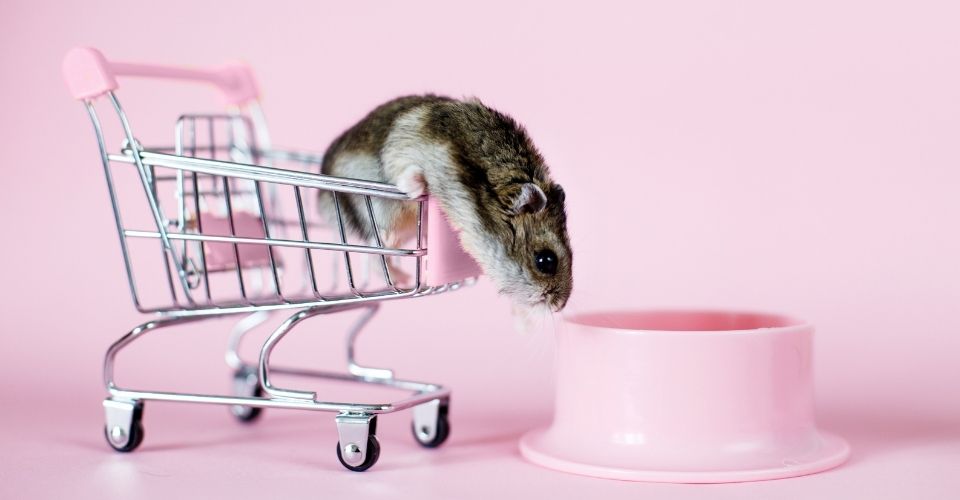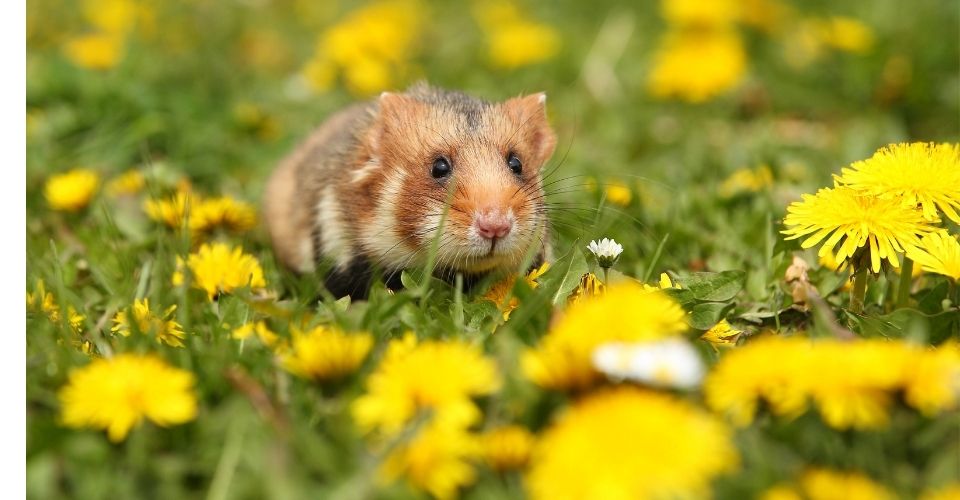Hamsters not only appear to be all squishy and sensitive, they actually are, especially when it comes to their food. Hamsters are omnivores but at the same time, they are allergic to certain foods. What about grapes? Can hamsters eat grapes? Yes, hamsters can certainly eat grapes depending on their size.
What do you need to be aware of before feeding grapes to you hamster? Can hamsters eat green grapes? How much grapes can hamsters eat in a day? Let us delve a little deep and find out all about hamsters and grapes.
Can Hamsters Eat Grapes?
Grapes aren’t really suitable for animals like cats and dogs as they have been known to bring harm to their kidneys. While it is often tempting to treat your pets to human food, it is best to resist the temptation. In the case of hamsters, however, grapes are something that most veterinary doctors approve of for hamsters’ consumption.
It is important to remember that grapes alone are not sufficient as a complete diet for our little critters. Grapes are nutritious and can prove as a form of treat for hamsters but they need their pellet food as their staple diet. Grapes can only be fed once or twice a week depending upon the breed and size of your hamster.
Are Grapes Good for Hamsters?
Hamsters are, in fact, really fond of grapes and enjoy munching on them. Their fondness for grapes arises from the grapes’ sweet taste and high content of fructose in them. Grapes are also rich in vitamin C, a requirement for hamsters to prevent them from getting conditions like scurvy. It is recommended, however, to always consult your veterinarian before feeding anything new to your hamster.
Grapes are full of antioxidants and also boast of vitamin K present in them; vitamin K is essential for hamsters to help clot their blood. Grapes also aid in boosting the hamsters’ immune system as well as to maintain a healthy skeletal system. The water content in grapes help the hamsters stay hydrated even on hotter days.
Are Grapes Bad for Hamsters?
On average, hamsters require only about 12 milligrams of food to keep them healthy and going. With such little requirements, one can easily overfeed their pet. Just a little overfeeding with grapes can cause serious digestive issues for hamsters and can even lead to them developing diarrhea. Due to high sugar content in them, grapes can also cause hamster to outgrow healthy body weight. Hamsters are also prone to diabetes; this is also another risk that comes with grapes.
Hamsters always present a choking hazard because of their smaller sizes. To avoid a choking incident with your hamster, it is best to remove any or all seeds from the grapes before placing the grapes in the hamster’s cage. Grape seeds can not only choke the hamster but can also block its digestive tract.
Feeding Grapes to Your Hamster
Be it grapes or any other food, always introduce new foods to your hamster gradually by giving them the smallest pieces of food. In the beginning, offer your hamster small, bite-size pieces of grapes and see how your hamster responds. Observe your hamster and see if it has trouble digesting it, or if it develops diarrhea or any other condition out of the ordinary; in case such a scenario arises, stop the feed immediately and contact your nearest vet.
If the hamster does not show any signs of trouble with grapes, you can continue feeding it with grapes. But, it is highly important to remember to not overfeed it! Smaller hamsters should be given fewer pieces of grapes while larger hamsters can be given a relatively larger quota of grapes, accordingly.
Hamsters are a lot like humans when it comes to their feeding patterns especially with sugary food items. One must remember to never exceed the recommended one teaspoon of fruit per week for hamsters. Exceeding this limit can be hazardous for your pet hamster.
Also, do not forget to properly wash off the grapes off any impurities before feeding them to your hamsters. One may be enticed to offer a whole grape to their hamster but it is strictly advised to not do so. Remember the rule, one teaspoon of fruit in a week!

